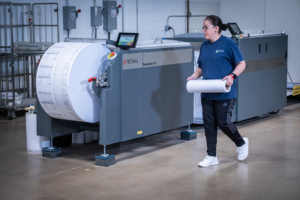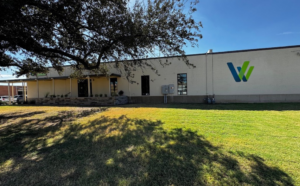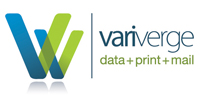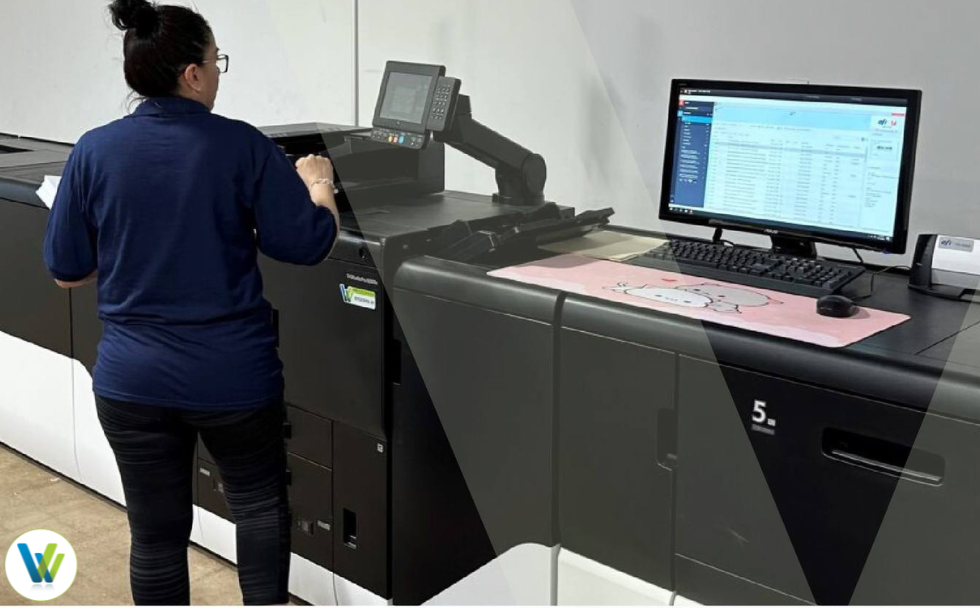Texas-based VariVerge has always had a focus on serving local appraisal districts and county tax offices, but they have continually evolved their services. Over the years, they have transitioned from microfiche services to postal presorting and ultimately transaction printing. Their commitment to innovation and precision has positioned them as a trusted provider of critical mailing services.
VariVerge now prints tax and appraisal notices for roughly half of the counties in the State of Texas and has gained a foothold in other states as well. It has expanded its industry reach to include utilities, financial services, healthcare, insurance carriers, mortgage document printing services, and credit collection agencies nationwide. Most of their work must be processed and in the mail within 24 or, at most, 48 hours. It involves sensitive mailings that demand strict controls to ensure data privacy, regulatory compliance, and accurate delivery. The ability to handle such high-stakes, high-volume work requires a sophisticated infrastructure, rigorous quality control, and a team dedicated to excellence. It’s not an easy business, and it becomes more challenging every day as compliance requirements and customer expectations continue to rise.
Unlike many transaction printers who have diversified into other application segments to compensate for the overall decline in the volume of transaction mail, VariVerge has demonstrated their ability to stay, and grow, in their lane. By continuously investing in cutting-edge technology, automation, and security protocols, VariVerge has solidified its reputation as a premier transaction print and mail provider. Their unwavering focus on accuracy, speed, and security makes them the go-to partner for organizations that rely on timely and confidential mailing solutions.
Inkjet driving growth and efficiency
Luke Austin, the CEO and Vice President of VariVerge, reports that, in the five years from 2019 to 2023, the company increased their production volumes from 40 million to 80 million impressions. Thanks to their investments in inkjet, their growth has been highly efficient as well. Austin says, “Labor stayed pretty flat as we grew. We didn’t have a reduction in staff, but we didn’t have to hire much additional labor to support double digit annual print growth.”
By 2018, the company’s organic growth, along with a couple of acquisitions, drove the need for higher capacity production equipment. At that time, VariVerge had a fleet of Xerox 4127 and Nuvera sheet-fed toner printers. In 2019, VariVerge acquired a Screen TruePress Jet 520NX continuous inkjet press and a RISO 7150 to use for reprints in their Dallas facility. Austin notes that “2019 was about as late as we could have gone and not introduced color without losing clients.”
Introducing a roll fed press into a cut-sheet environment was a huge undertaking from a workflow perspective, particularly since VariVerge had an ongoing need for sheet-fed production. “I didn’t want to lose the sheet-fed workflow in case we needed to run a job quickly on a sheet-fed printer. So, all our jobs process ready to go to sheet but if we want to go to roll, they just go through a couple more automated layout steps,” says Austin. The company was able to add high-speed capacity while remaining agile and flexible. Very quickly, they were hungry for more inkjet.

“We needed a better machine for reprint in Dallas and we wanted to replace toner altogether,” said Austin. “We went on site to Kyocera in Dallas. We got comfortable with the Kyocera based on direct comparison to RISO and ink on paper and the quality and the speed of the Kyocera machine was so much better we were sold.” VariVerge installed two Kyocera TASKalfa Pro15000c presses in Amarillo and a third in Dallas. As of March of this year, they have retired all the toner machines.
The Kyocera TASKAlfa Pro 15000c is a 600dpi sheet-fed press that runs at 146 ipm. Resolution can be increased to 600×1,200dpi at slower speeds. The press supports paper weights ranging from 56 to 300 gsm and includes a contact image sensor (CIS) to control registration and ensure that paper edges remain smooth throughout processing. It is a highly productive, entry-level priced press, with a projected duty cycle exceeding 3 million letter pages per month.
“It was clear from the beginning that to print color or black and white on the Kyocera you’re spending a tenth of a cent and on the toner boxes you were spending five-tenths of a cent, so for me the cost analysis stops at that point,” added Austin. VariVerge reports that the uptime for the TASKalfa Pro15000c is 40% to 50% higher than for the toner machines.
In addition to dramatically reducing per-image charges, VariVerge was able to gain other efficiencies as well. They now have a sheet-fed press in Dallas that is capable of much more than reprints. They have replaced almost all preprinted stocks and have moved high volumes of preprinted inserts that were previously outsourced to run inline on inkjet. This added revenue and avoided the need to store and manage large volumes of inserts. Bringing full control of the insert process in-house also relieved a lot of stress from big jobs with quick turnaround. For example, when assessor’s offices send appraisal notices, property owners have 30 days to question their appraisal starting from the date the district puts on the notice. Those notices must be in the mail same day, however, sometimes the jobs come in along with a request for pre-printed inserts. “Running inserts inline has been a huge logistical and cost savings benefit of the transition,” said Austin. “We really could not have done that without the uptime and speed of the inkjet technology.”
VariVerge also leveraged color to solve other logistical problems for clients. Austin explains, “Some of our tax and appraisal industry customers like to print different document types on different color paper for routing purposes.” Since colored papers are more expensive, and lead to more frequent paper changes, VariVerge used strategic color on the document to serve the same purpose. Austin said, “By printing the routing color around the address block where it was viewable through the address window, the process works for return mail processing as well. If they see pink, they know it goes to this department and green goes to that department without even opening the envelope.” Contact us for more information!
Data + Print + Mail

Contact McKenzie Parker with any questions you may have.
Phone: 432-203-6935
Email: [email protected]

